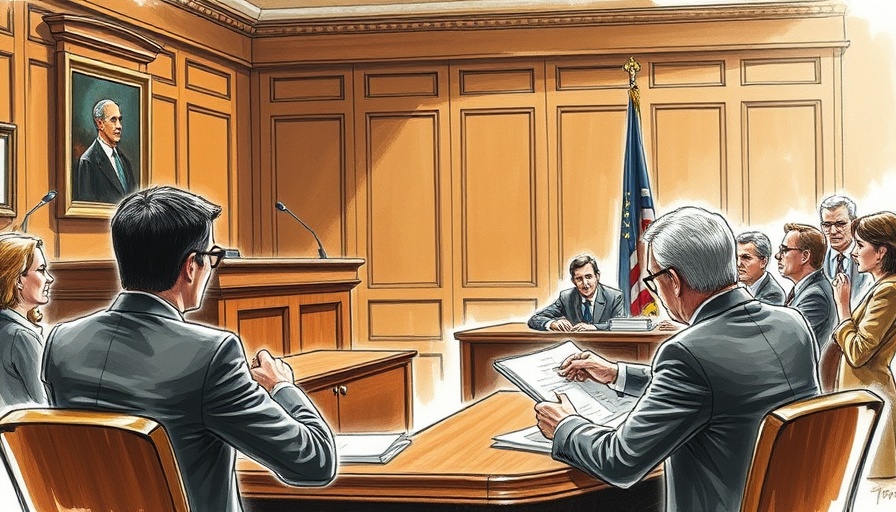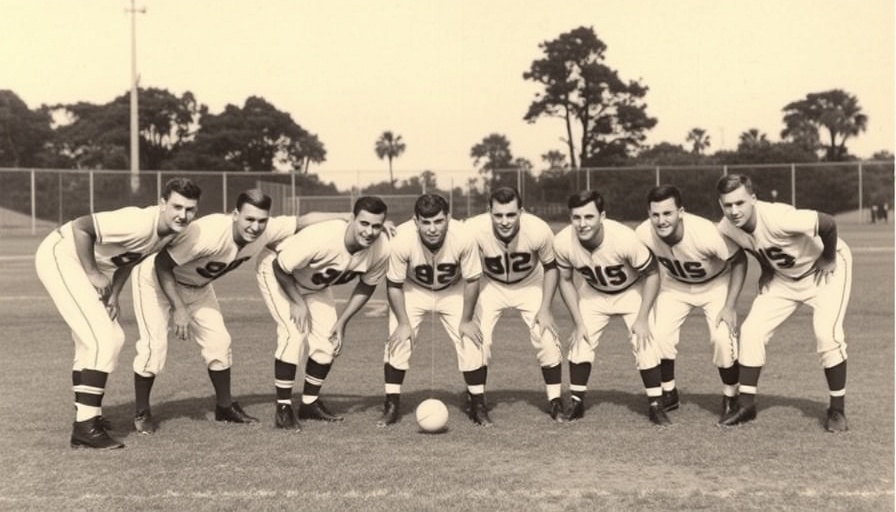
The Unfolding Drama of Ryan Routh's Trial
The trial of Ryan Routh, the accused who allegedly attempted to assassinate Donald Trump in 2024, has brought to light a series of unusual courtroom moments and intriguing discussions. As the trial commenced at the federal courthouse in Fort Pierce, Florida, Routh found himself in the unique position of representing himself. This choice has led to a captivating, albeit chaotic, courtroom atmosphere as Routh navigates legal proceedings with both charisma and confusion.
Context Behind the Accusation
Routh’s case revolves around a shocking incident that occurred on September 15, 2024, when he reportedly pointed a rifle at Trump while the former president played golf at a West Palm Beach country club. Initial reports indicated that a Secret Service agent acted swiftly, preventing potential tragedy when they opened fire, prompting Routh to flee. The scenario raised alarm and has since drawn intense media scrutiny, raising questions about Routh's mental state and motivations.
Courtroom Antics Capture Attention
As jury selection wrapped up, with 12 jurors and 4 alternates chosen, Routh's behavior during opening statements became a focal point. Instead of adhering to the expected format, Routh began discussing themes as diverse as the origins of humanity, historical figures like Hitler, and even everyday images of camping. When his observations veered off-script, Judge Aileen Cannon interrupted, reminding Routh of courtroom decorum and the necessity to present relevant evidence objectively. Yet, this did not deter Routh; he attempted to blend profound thoughts with his defense, leading to unexpected emotional outbursts that appeared to resonate with a captivated audience.
Implications of Self-Representation
Routh's decision to self-represent raises essential questions about the legal system and mental health in high-pressure situations. While self-representation can symbolize a desire for autonomy in one's defense, it also highlights risks, particularly when the individual may be struggling with complex mental health issues. Court observers often note that defendants who opt for self-representation may lack the expertise to navigate legal complexities, which can hinder their cases. Routh's journey has become a case study in the interplay between law, personal agency, and psychological well-being.
Public Reaction and Media Coverage
The media has closely followed Routh's trial, with social media buzzing with updates and commentary. Public reaction has ranged from fascination to concern, underscoring the inherent drama present in cases that involve high-profile figures. As news of Routh's peculiar courtroom exchanges spreads, it sparks discussions among spectators and analysts alike about the broader implications for political discourse, mental health awareness, and individual rights within the legal system.
A Call for Reflection and Action
As the trial proceeds, it’s critical for the community to engage in deeper conversations about mental health and the legal ramifications of high-profile cases. Instances like Routh's are reminders of the complexities that intertwine law, individual responsibility, and psychological stability. Audience members are encouraged to stay informed, advocate for comprehensive mental health resources, and support initiatives that promote understanding within the community.
 Add Row
Add Row  Add
Add 


Write A Comment